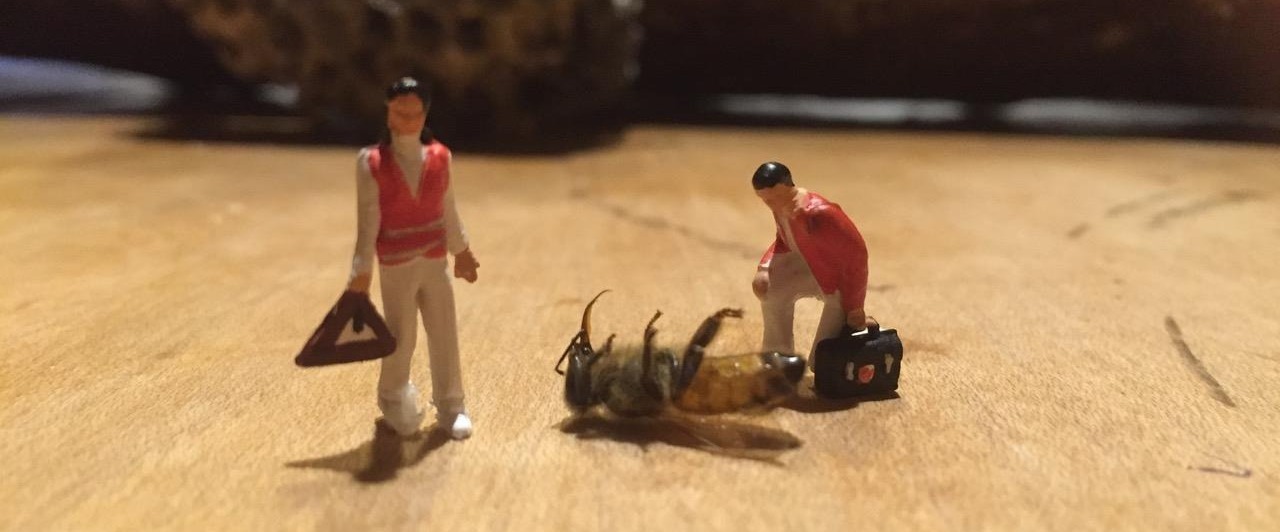Bees Need Vets
Diagnostic tools for honey bee medicine - Learn how to diagnose common honey bee ailments.
- Printable factsheets for diagnosing honey bee diseases.
Veterinarian Needs Assessment - If you are a veterinary practitioner and are interested in participating in learning more about honey bees, please fill out our survey.
Honey bee veterinary field diagnostic kit - Learn about the items included in our field kits.
Honey bee veterinary resources - Useful information and resources about honey bee medicine.
Michigan monthly veterinary discussions - Use this link for more information and to sign up for reminders of our monthly veterinary discussions in Michigan. We welcome all veterinary practitioners in Michigan wanting to learn more about honey bees, learn about honey bee medicine, and connect with other veterinarians and honey bee experts.
Sign up to attend quarterly nationwide veterinary discussions - Join our quarterly meetings to meet with extension educators to discuss honey bee medicine. These are free, virtual meetings to discuss the veterinary needs of beekeepers, learn about honey bee medicine, and talk bees. All veterinary practitioners are welcome to join, including veterinarians, veterinary technicians and nurses, and veterinary students. Only one registration is required for all meetings, even if you cannot attend each one.
Honey bee medicine
Honey bees are important food-producing animals. Like other animals, they can benefit from the care of veterinary medicine practitioners. Currently, beekeepers must work with licensed veterinarians in order to obtain antibiotics (Rule #213). However, there are many other ways that veterinary practitioners could help the beekeeping industry including nutrition guidance, biosecurity plans, parasite management, and disease diagnostics. Unfortunately, most veterinary practitioners have little to no experience working with honey bees or beekeepers, and many beekeepers struggle to find a veterinarian to work with them.
Michigan State University is working with University of Minnesota, Texas A&M, and University of Florida to train veterinarians, veterinary technicians and nurses, and veterinary students in honey bee medicine. Funding from the USDA NIFA VSGP program and the USDA SARE program is being used to develop training materials, and to host online courses, and hands-on clinics to train veterinary practitioners in honey bee medicine. This site will host resources for veterinarians, events, and links to the online course.
Visit the Honey Bee Veterinary Consortium - https://www.hbvc.org.
If you have more questions feel free to contact MSU's team at honeybees@msu.edu.

Photo credit - Joerg Mayer